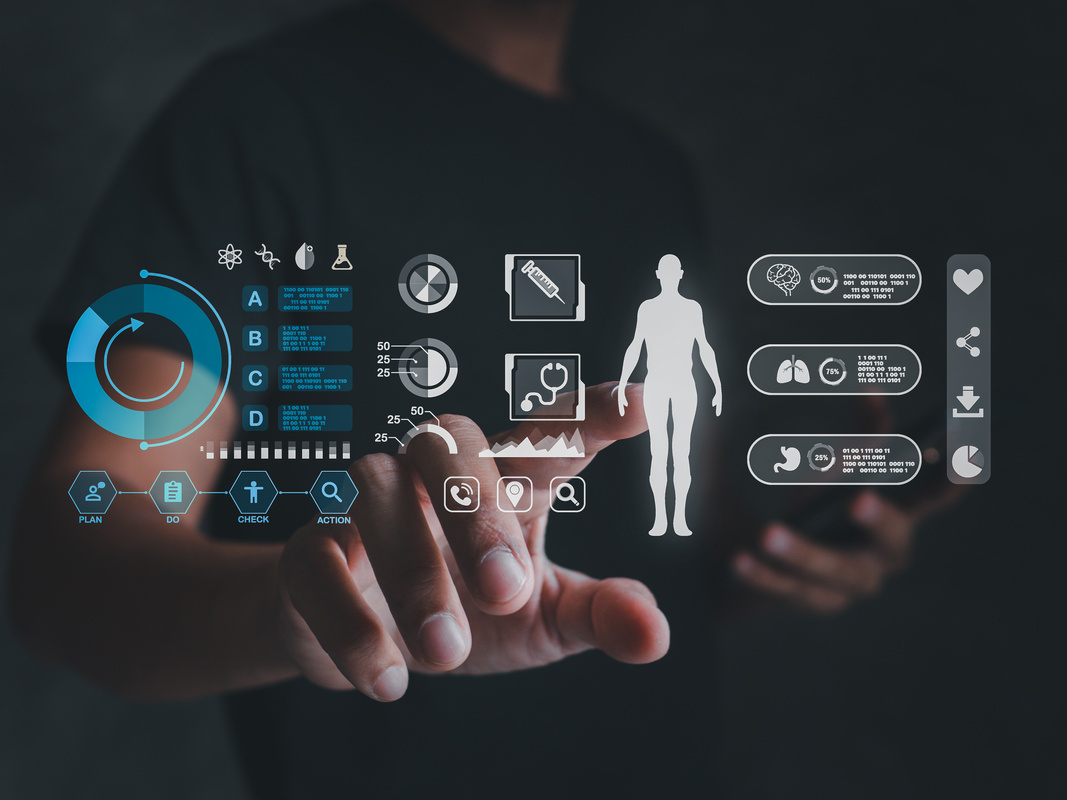In an era defined by technological advancements, the landscape of healthcare is undergoing a profound transformation. Integrating digital healthcare solutions has revolutionized patient care, offering unprecedented opportunities to enhance accessibility, efficiency, and effectiveness. These digital solutions are reshaping how healthcare is delivered and experienced, from AI-driven telemedicine platforms to innovative health management apps. In this article, we describe several key aspects of how digital healthcare solutions enhance patient care.
 © Adobe Stock
© Adobe Stock
Introduction to Digital Healthcare
Digital healthcare encompasses various technologies and platforms designed to improve patient outcomes and streamline healthcare delivery. At its core, digital healthcare leverages technology to facilitate remote consultations, real-time data analysis, and seamless integration of healthcare services.
According to a recent survey[1], 83% of doctors believed AI could help streamline their practice, lessen the workload, and diminish over time. Doctors are positive that digital healthcare is heading in the right direction, giving them hope for the future. By embracing digital solutions, healthcare providers can transcend traditional limitations and offer patient-centric care that is both personalized and efficient.
R&D Investments, Real-Time Data Analysis, AI and ML
Continuous research and development investments fuel digital healthcare, driving real-time data analysis and predictive analytics innovations. By harnessing the power of big data, healthcare providers can gain valuable insights into patient health trends, treatment effectiveness, and disease prevention strategies. Real-time data analysis empowers healthcare professionals to make informed decisions, tailor treatment plans to individual needs, and proactively address potential health risks before they escalate.
A recent study[2] points out that ML has been heavily used to address the problem of missing data in several different ways across multiple causes of data missingness, data-related assumptions and goals, and data collection and analytic methods. In addition to that, as of the end of last year (December 2023), the FDA came up with an official recommendation guide document[3] on the usage of digital health technologies (DGTs) for remote data acquisition used in clinical investigations and trials. This further confirms the value of real-time medical data for clinicians and medical professionals as well as for R&D purposes.
Health Management Apps for Patients and Medical Experts
One of the most transformative aspects of digital healthcare is the emergence of AI-driven telemedicine solutions. These platforms connect patients with healthcare professionals remotely, breaking down geographical barriers and improving access to care, especially in underserved communities. Through video consultations, remote monitoring, and AI-powered drug discovery & diagnostics, telemedicine enables timely interventions, early detection of health issues, and ongoing management of chronic conditions.
 © Adobe Stock
© Adobe Stock
The proliferation of health management apps has empowered patients and medical professionals to take control of their healthcare journey. These apps, such as Diabetes:M and Medrec:M – two developments of our subsidiary Sirma Medical Systems, offer user-friendly interfaces and comprehensive features for tracking health metrics, managing medications, and accessing educational resources. For medical professionals, health management apps facilitate remote patient monitoring, tracking medication adherence, and seamless patient communication, fostering a collaborative approach to care delivery.
Explore further Sirma’s telemedicine developments.
Impact on Patient Care
The impact of digital healthcare solutions on patient care cannot be overstated. By enhancing accessibility, efficiency, and effectiveness, these solutions improve health outcomes, increase patient satisfaction, and reduce healthcare costs. Whether enabling remote consultations for rural patients, empowering individuals to manage their health actively, or optimizing treatment plans through data-driven insights, digital healthcare is revolutionizing the patient experience.
A summarized report encompassing 18 studies[4] states that the impact of digital services was positive on patient satisfaction in 78 % (14 out of 18) of the included reviews. This is a testament that patients clearly view digital services as a positive influence in healthcare.
Integration Challenges and Technological Solutions
Despite the promise of digital healthcare, integration challenges often hinder seamless adoption and implementation. We at Sirma are at the forefront of addressing these challenges, offering expertise in integrating disparate systems, ensuring interoperability, and maximizing the value of digital investments. Through innovative technological solutions and strategic partnerships, we enable healthcare providers to overcome integration hurdles and fully leverage the benefits of digital healthcare solutions.
Our deep expertise and cutting-edge healthcare technology capabilities allow clinics, hospitals, private practices, research, diagnostics, and drug discovery organizations to deliver superior, cost-effective patient care. Learn more about what we do in the healthcare vertical.
Future Trends and Opportunities
Looking ahead, the future of digital healthcare is brimming with possibilities. Emerging trends such as wearable health devices, personalized medicine, and virtual reality-enhanced therapies promise to further advance patient care and transform the healthcare landscape. As technology continues to evolve, healthcare providers must embrace innovation, adapt to changing patient needs, and seize opportunities to enhance patient care through digital solutions.
Conclusion
Digital healthcare solutions are ushering in a new era of patient-centric care, where technology serves as a catalyst for positive change. These digital innovations are reshaping the healthcare landscape and empowering patients and providers, from AI-driven telemedicine platforms to health management apps and beyond. By embracing digital healthcare solutions, healthcare providers can unlock new possibilities, improve outcomes, and ultimately revolutionize how healthcare is delivered and experienced.
Sources: [1]Nearly all doctors feel burnout, but many are encouraged by the potential of AI… [2] The role of machine learning in clinical research: transforming the future of evidence generation [3]Digital Health Technologies for Remote Data Acquisition in Clinical Investigations [4] Impact of digital services on healthcare and social welfare: An umbrella review
